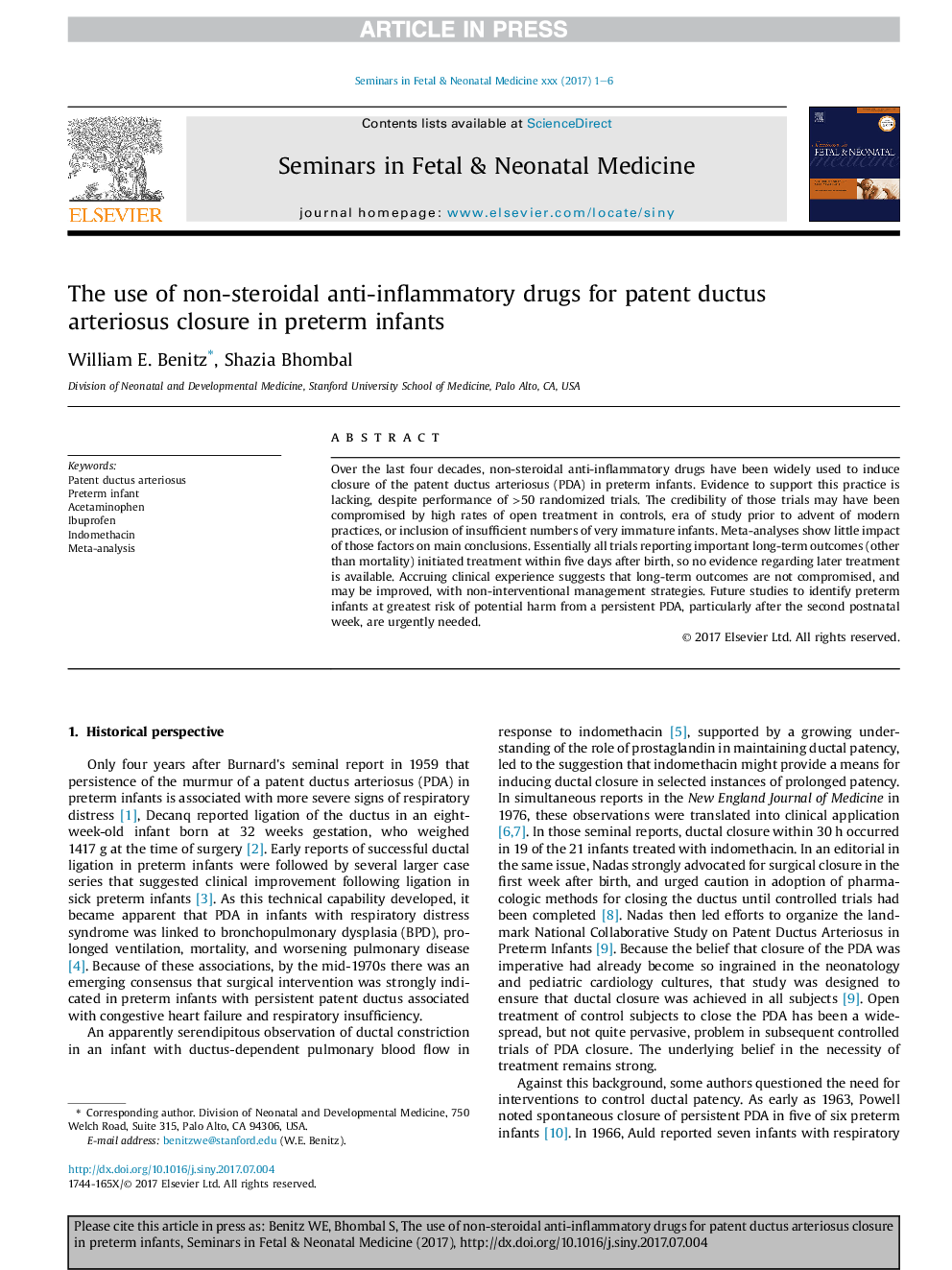| Article ID | Journal | Published Year | Pages | File Type |
|---|---|---|---|---|
| 5696870 | Seminars in Fetal and Neonatal Medicine | 2017 | 6 Pages |
Abstract
Over the last four decades, non-steroidal anti-inflammatory drugs have been widely used to induce closure of the patent ductus arteriosus (PDA) in preterm infants. Evidence to support this practice is lacking, despite performance of >50 randomized trials. The credibility of those trials may have been compromised by high rates of open treatment in controls, era of study prior to advent of modern practices, or inclusion of insufficient numbers of very immature infants. Meta-analyses show little impact of those factors on main conclusions. Essentially all trials reporting important long-term outcomes (other than mortality) initiated treatment within five days after birth, so no evidence regarding later treatment is available. Accruing clinical experience suggests that long-term outcomes are not compromised, and may be improved, with non-interventional management strategies. Future studies to identify preterm infants at greatest risk of potential harm from a persistent PDA, particularly after the second postnatal week, are urgently needed.
Related Topics
Health Sciences
Medicine and Dentistry
Obstetrics, Gynecology and Women's Health
Authors
William E. Benitz, Shazia Bhombal,
